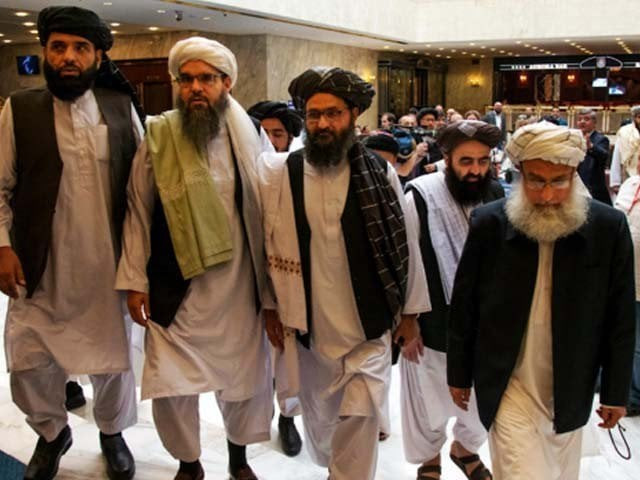Can Pakistan fulfil its commitments on Taliban?
The US has made its intent very clear: “Help us out to extricate ourselves” from Afghanistan

PHOTO: EXPRESS
PM Khan’s visit has somewhat melted the ice in putting back on track a frosty relationship marked with distrust and a sense of betrayal. However, the real test of making it an enduring one rests upon the commitments made by Pakistan in Washington. The US has made its intent very clear: “Help us out to extricate ourselves” from Afghanistan, while staying firm with their South Asia Strategy announced in August 2017.
Pakistan’s commitments pertain to the Afghan peace process, and PM Khan has assured the US of convincing the Taliban to sit face to face with the Afghan government, and to get three foreign hostages released from Haqqani Network’s detention. So far, Pakistan has conducted itself reasonably well. It facilitated the US efforts and also warmed up to Afghanistan to reset the bilateral ties. Pakistan’s role is indeed very crucial, but it needs to engage itself cautiously due to certain important reasons.
First, Afghanistan is a complex web of varied interest and power groups and bringing them all on one page has always remained an arduous task. Deep internal cleavage exists not only within the Afghan government and the Taliban, but also among various political, tribal and ethnic factions inside the country. Most importantly, the Afghan political elites do not trust Pakistan and may question its active involvement. Pakistan needs to approach cautiously since Pakistan’s engagement with the Taliban would strengthen the narrative in Afghanistan that it is attempting to define Taliban’s future role in the Afghan setup.
Second, Pakistan agreed to facilitate the parleys between the US and the Taliban on two most intricate issues — intra-Afghan dialogue and ceasefire — as part of their four-point agenda. So far, the Taliban have shown rigidity on the two accounts. For them a ceasefire could hurt their cause, unless the US withdraws its troops from the war-ravaged country. Similarly, they regard the National Unity Government (NUG) as a US puppet. The Doha meeting in July between the Taliban and the Afghan leadership has not brought any improvement in terms of peace commitments made by the two sides, and the Taliban attacks have continued.
Third, Pakistan needs to be careful since the Taliban now enjoy a certain degree of trust and confidence with other regional countries especially Russia, China and Iran. This has reduced their dependency on Pakistan. Most importantly Pakistan should be careful that if the US-Taliban talks fail to bring the desired outcome and Washington does not secure safe exit from the Afghan theatre, the burden of the failure will be conveniently shifted to Pakistan.
Fourth, the Taliban had been demanding the release of their imprisoned fighters for a long time. The release of two American and one Australian hostage from the the Haqqani Network’s captivity may not happen unless the other side also release hundreds of their detained fighters — a decision which may see strong resistance from within the Afghan political landscape.
This is going to be a tough test for Pakistan as it has to prove itself to the US in particular and to the Afghans and wider regional counterparts as an honest peace broker. The mistrust will only start to defuse once Pakistan shows a degree of success in convincing the Taliban to abandon violence and enter into result-oriented dialogue with the NUG. The future course of bilateral relations between the US and Pakistan and resumption of security assistance largely depends upon the fulfilment of its commitments by Pakistan.
Published in The Express Tribune, July 31st, 2019.
Like Opinion & Editorial on Facebook, follow @ETOpEd on Twitter to receive all updates on all our daily pieces.















COMMENTS
Comments are moderated and generally will be posted if they are on-topic and not abusive.
For more information, please see our Comments FAQ